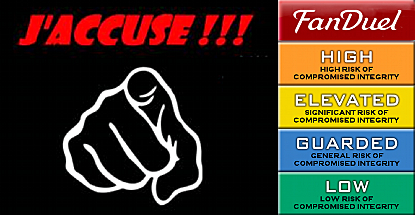 South Carolina legislators have filed a new bill to legalize sports betting in the Palmetto state. The H 3127 bill, sponsored by Democratic Representatives Todd Rutherford and Cezar McKnight, would authorize not just betting on pro sports events but also pari-mutuel racing and casinos. The state currently boasts only a couple of casino cruise boats that sail gamblers into international waters.
South Carolina legislators have filed a new bill to legalize sports betting in the Palmetto state. The H 3127 bill, sponsored by Democratic Representatives Todd Rutherford and Cezar McKnight, would authorize not just betting on pro sports events but also pari-mutuel racing and casinos. The state currently boasts only a couple of casino cruise boats that sail gamblers into international waters.
Before anyone gets excited, even if the dynamic Democratic duo can convince South Carolina Republicans and anti-gambling Gov. Nikki Haley to get on board, the bill would also require a referendum on amending the state’s constitution, so basically, it’s the legislative equivalent of a lottery ticket.
South Carolina’s bill comes just days after sports betting legislation was filed in Indiana. ESPN scribe David Purdum (@DavidPurdum) says we can expect a similar effort in Minnesota this year, with state Rep. Phyllis Kahn promising to introduce a new version of the HF 522 sports betting bill she introduced in 2013.
NEW JERSEY BETTING ADVOCATES SLAM LEAGUE HYPOCRISY OVER DAILY FANTASY SPORTS
Of course, none of these bills are going anywhere unless New Jersey’s latest court challenge of the federal PASPA sports betting prohibition succeeds. The state’s advocates, including Gov. Chris Christie, the New Jersey Thoroughbred Horsemen’s Association and the leaders of the state’s two legislative chambers, filed their latest briefs with the US Third Circuit Court of Appeals on Wednesday.
Most of the arguments in the briefs will be well familiar to anyone who has followed this issue. The new wrinkle appears to be an attack on the pro sports leagues’ recent embrace of daily fantasy sports (DFS). Former NBA commissioner David Stern, who staunchly opposed New Jersey’s betting plans while he was still on the NBA payroll, recently told CNBC that (in his view, at least) DFS was gambling and this had changed the dynamic of the debate.
The Horsemen’s brief asks whether the District Court that upheld the leagues’ injunction against New Jersey’s legislation made the right decision given the leagues “unclean hands.” Said hands allegedly became unclean via the leagues’ “support, ownership, sponsorship of, investments in and profits from business enterprises engaged in the same activity they hypocritically sought to enjoin in the action.”
The Horsemen claim the leagues “make millions, directly and indirectly, from both actual and so-called fantasy sports betting on the outcome of their games as well as the performances of their players in their games.” The Horsemen say the leagues’ interest in DFS “has reached ‘gold rush’ proportions” and that the leagues “have become ‘bookies’ who profit directly by accepting wagers on the performances of their own players in their own games.”
The Horsemen go on to argue that because DFS results hinge on the actions of individual players, DFS offers “a myriad of manipulative schemes by which players and bettors can ‘fix’ the outcome of a fantasy bet, without even being noticed or without affecting the ultimate outcome or score of the game.” The Horsemen cite the infamous basketball ‘point shaving’ escapades of previous decades as an example of how DFS could be misused.
Bottom line, the Horsemen maintain that DFS manipulation was “nearly impossible to detect” and while it “may not alter the outcome of a game or even the score,” the risks are “far more threatening to the integrity of the Leagues’ games than would be carefully self-regulated sports betting at Monmouth Park.”
